Phoebe Waller-Bridge’s second installment of Fleabag, which dropped on Amazon Prime in May 2019, has left us all with an emotional hangover. The continuation of Fleabag’s story, played out expertly by Waller-Bridge, from rock bottom to healing has been both inspiring and incredibly moving.
We all somehow want more of Fleabag and also think that the ending of season two was perfect, no season three necessary. But if you’re looking for an excuse to rewatch seasons one and tow (not that we think you need one), here are some small–but important!–details you can go back and look f0r.
The Newspaper Advertisement
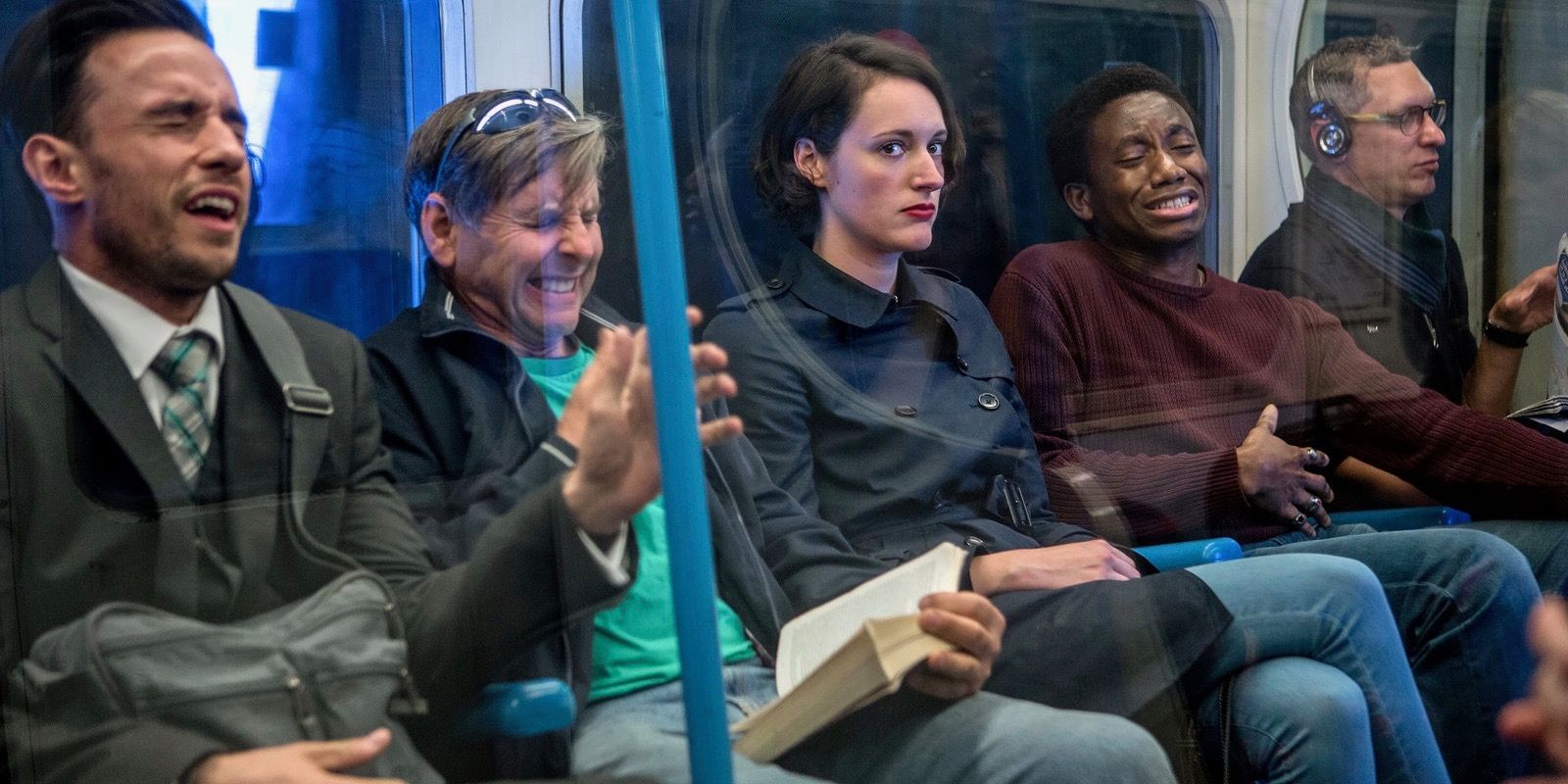
In the very first episode of Fleabag, we see our anti-heroine sitting on a bus reading a newspaper. The article she appears to be reading has a headline asking the question, “Has The Word ‘Feminism’ Becomes Dirty?” It seems to be a short article, and naturally it appears just above an advertisement of a woman laying on a bed in lingerie with her legs spread provocatively. The advertisement is for a mortgage.
From the outset, Phoebe Waller-Bridge’s show seems to be asking us to consider what feminism really means, and if it’s working. After all, Fleabag appears, at least at first, to be the picture the Freed Independent Woman that feminism promised us. But the more we get to know her in season one, the more we have to wonder: Is she just trapped in a different way?
The Smoking Arc
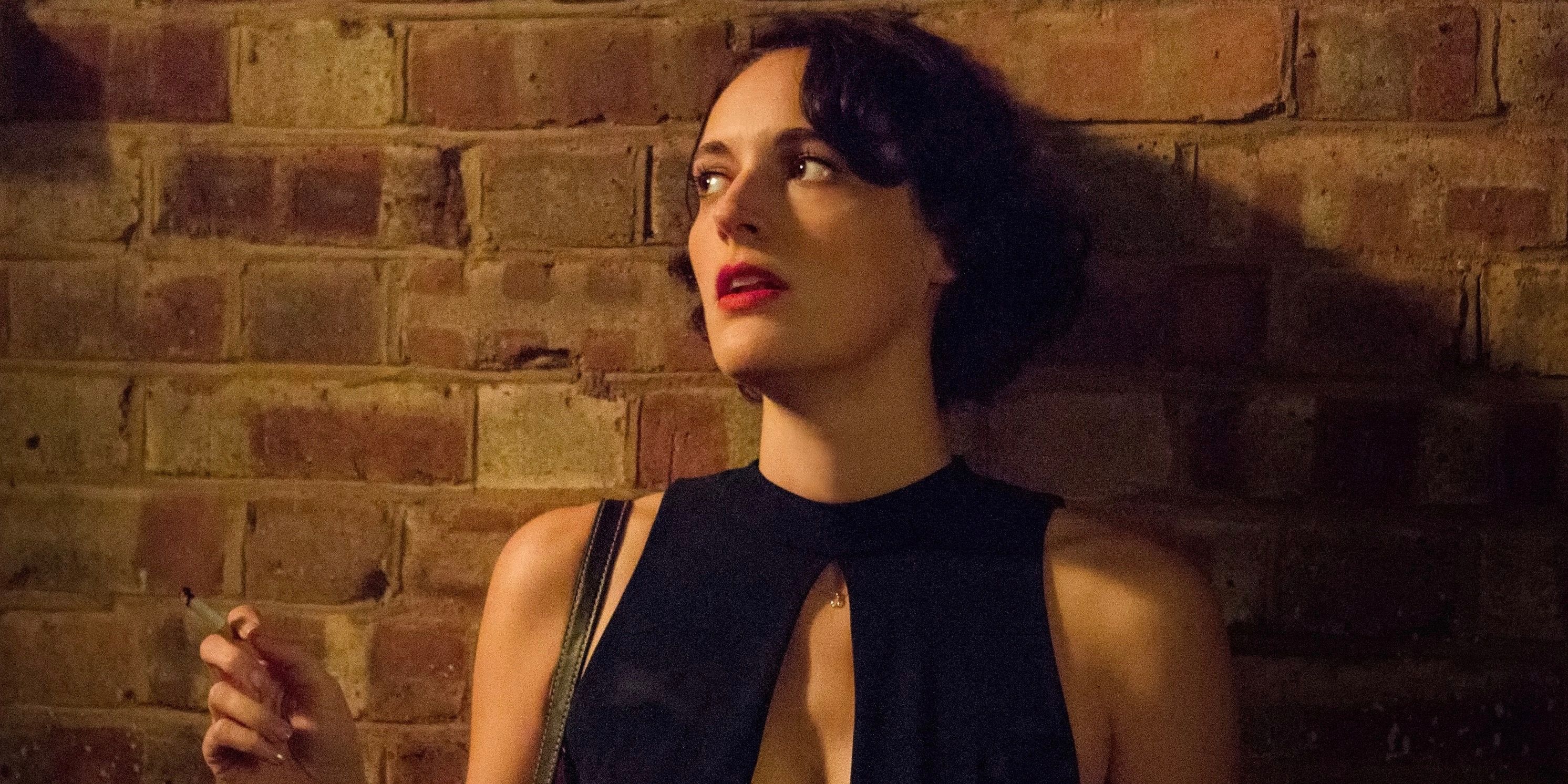
There’s a lot of smoking in the show, which often gives us opportunities to hear more of Fleabag’s thoughts. There’s also a lovely—but easy to miss—smoking arc that mirrors her relationship with her father. The first time we see her offer him a cigarette, in the last episode of season 1, he takes it only to drop it. He’s angry with her in the scene, or maybe just disappointed, then sends her away soon after dropping the cigarette. The second time Fleabag offers her father a cigarette, he considers it but ultimately doesn’t take one. The third time, at the end of season 2, he finally has a drag and sort of chuckles.
The first drop mirrors his complete rejection of her and who she is at the end of season 1. The second cigarette is him considering who she is becoming and what to do next. The third and last is when their relationship has healed quite a lot—he is willing to engage, even if there are still things he doesn’t like about her.
Dad Can’t Finish a Sentence
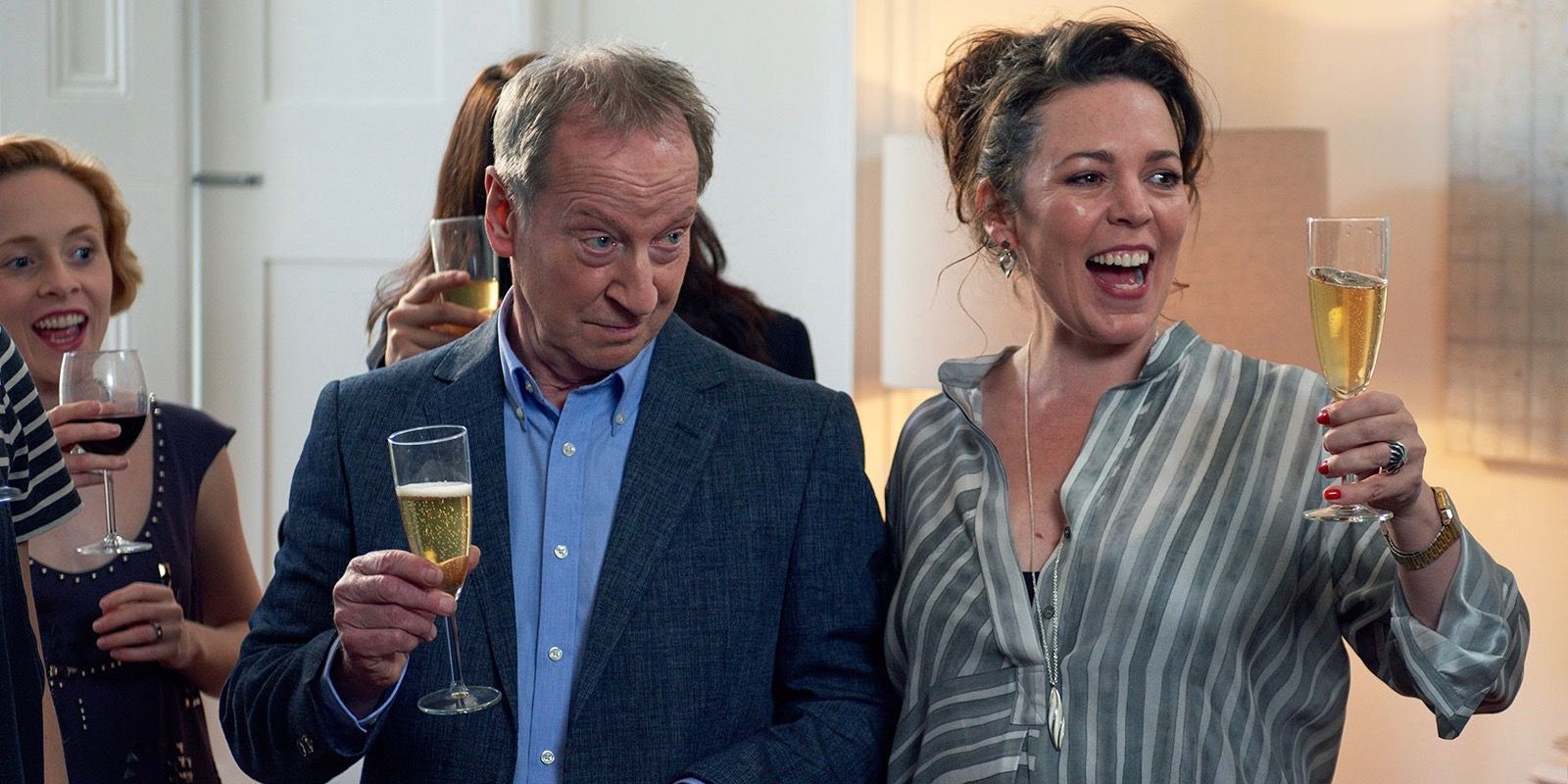
In all twelve episodes, Fleabag’s Dad struggles to get through a single sentence. Quick sentences, less than about five words, he can do just fine. But every time he’s asked to talk for more than a second, he trails off, changes topics, and “uhm”s his way through. The women in his life—Fleabag, Claire, Godmother—seem to sort of understand what he’s saying, or trying to say, and allow it. It’s not until the final episode, when Fleabag begs him to finish just one sentence, that we see him express a full idea.
Similar to smoking, whether or not he can finish a sentence seems to mirror his comfort with the women in his life. The more tense everyone else is the more Dad struggles.
The Hidden Tribute to The Editor

Gary Dollner handled the editing for both seasons of the series. In the final scene of the show, Waller-Bridge and the rest of the crew paid him a lovely tribute. At the bus stop, the digital display for the bus route reads “Dollner Avenue.” Dollner has also worked on Waller-Bridge’s Killing Eve, so their relationship is clearly friendly.
That the timing readout for the Dollner Avenue bus eventually changes to ‘cancelled’ is a perfect wink to the fact that this is the show’s final season…probably. Only rewatches will tell us if the names of the other crew members appear in buildings and side-streets.
All the Religious Symbolism
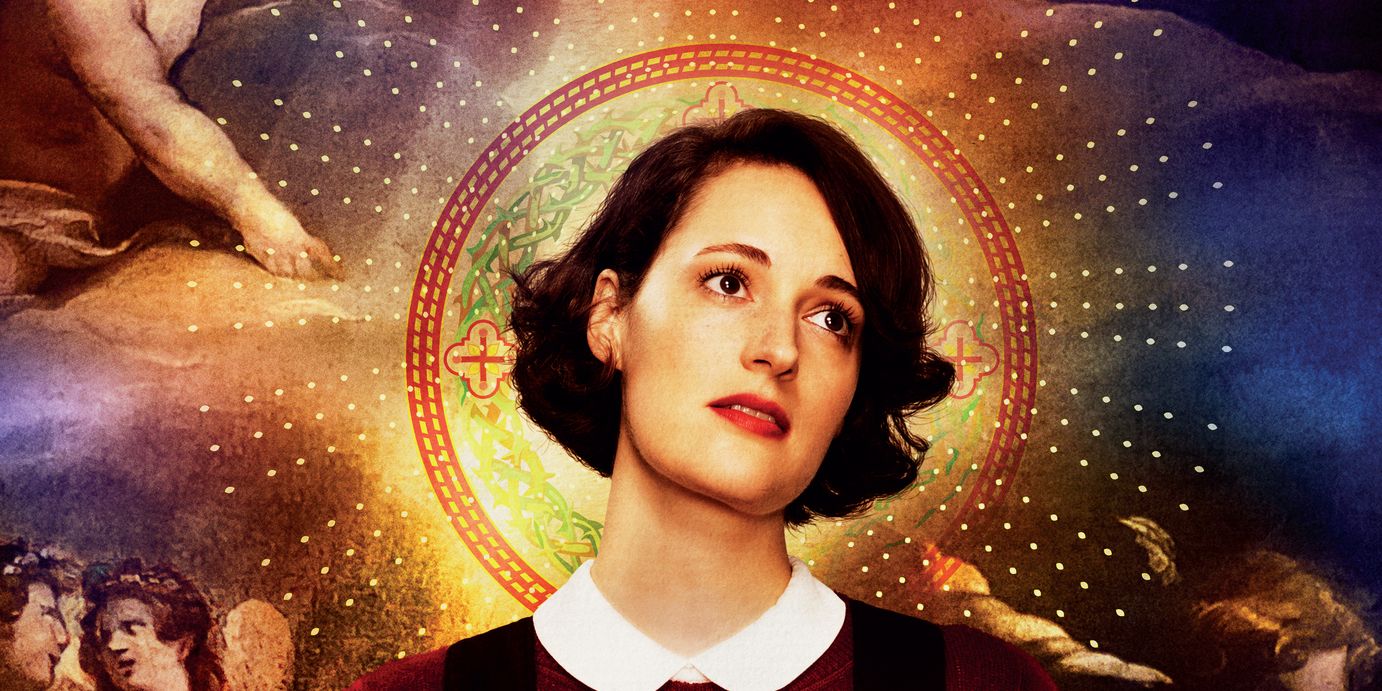
You probably didn’t miss that there’s a lot of Catholic imagery this season. One of the main characters is, after all, a Catholic priest. But did you notice the symbolism of the promotional poster for season 2 of Fleabag?
Everyone’s favorite anti-heroine poses with Hilary the guinea pig, a halo around her head, and angels all around her. Using modern clothing makes it a slight inversion of traditional saint imagery, but otherwise it’s very similar to traditional imagery of Saint Agnes. Agnes is often depicted with dark curly hair and carrying a lamb. She is the patron saint of girls and chastity. Given how much we know of Fleabag’s sex life, the reference to chastity is clearly a bit tongue in cheek, but the story of Agnes is resonant for Fleabag. Agnes refused to be one man’s wife so she was forced to be everyone’s whore, and is now a canonized saint for it. Nearly two thousand years later in London, Fleabag used promiscuity as an escape but was then loved by a priest.
Hilary is Fleabag’s Heart
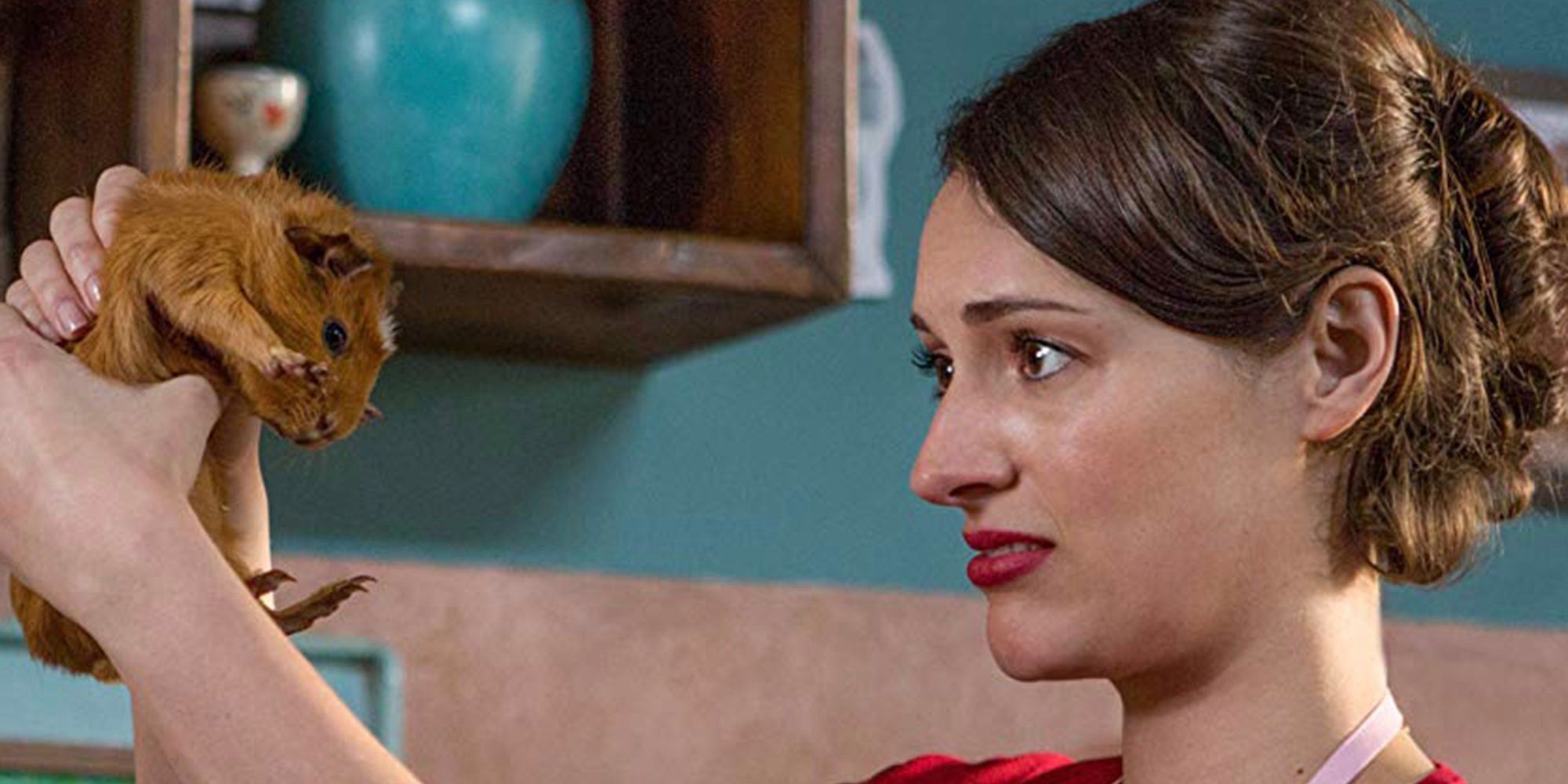
Speaking of Hilary the guinea pig—she is probably meant to be a symbol for Fleabag’s heart. She gifted it to Boo, even though it wasn’t something she was sure Boo wanted. But Boo tended to it so lovingly, making the whole café about Hilary. Boo was where Fleabag placed a lot of her love for so long, as we see when Fleabag said she didn’t know what to do with all the love she had for her mother and Boo replies, “I’ll take it.”
Because Hilary symbolizes Fleabag’s heart, that’s probably why she was so upset by Rodent Guy’s reaction to it. Him calling it a rat over and over clearly hurt her—because he was symbolically rejecting her love. In season two, Priest says “I’m just trying to help you,” dismissing their flirtation/love, so Fleabag takes Hilary away from him. She says, “You’ve played with my guinea pig enough,” but we really know she meant, “You’ve played with my heart enough, Priest.”
The Priest Isn’t a Smoker
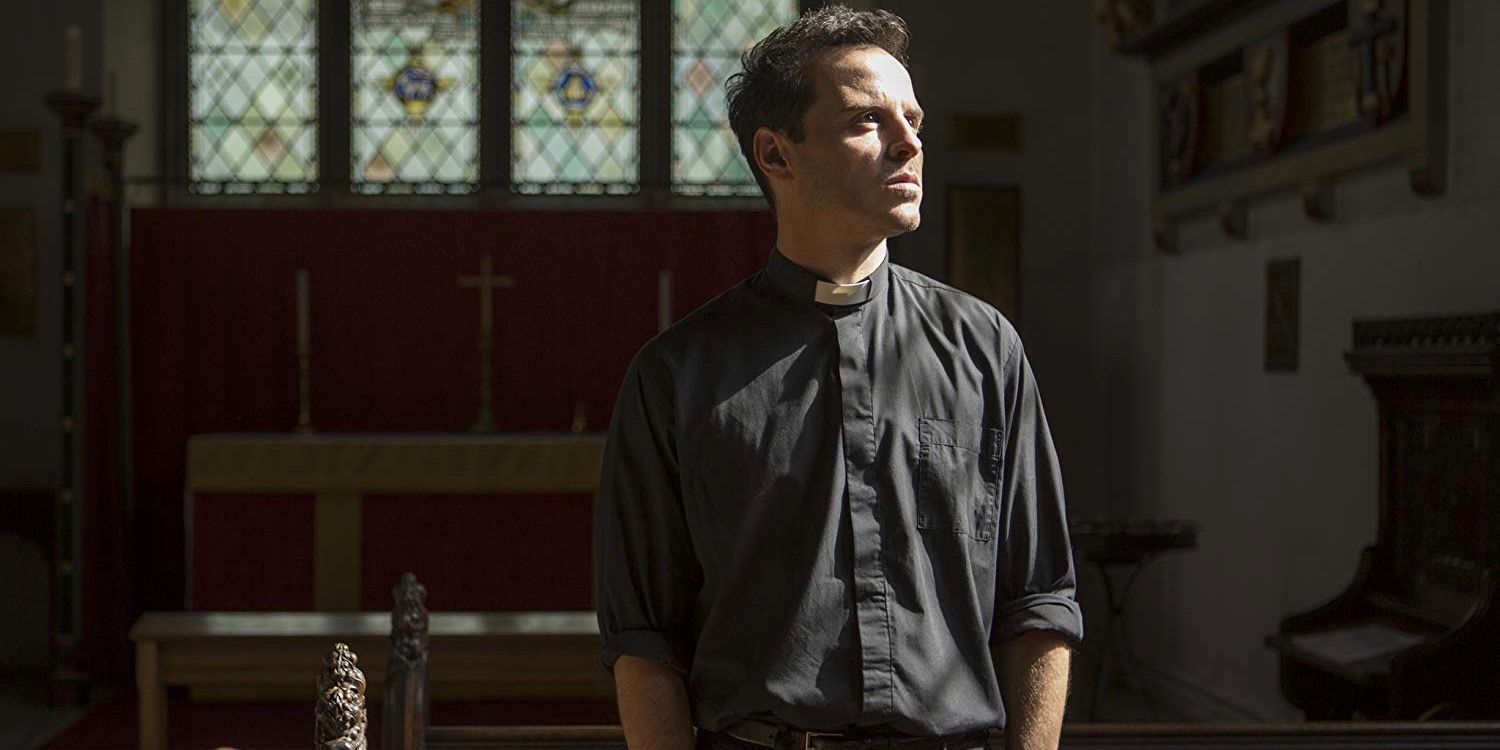
During the entire second season Priest is pretty open about his vices and hang-ups. Alcohol is definitely one, and sex probably is, given how he says he’s been in “this situation many times.” What “this situation” means is unclear—with other parishioners (doubtful, since it seems like Fleabag meets him during his first assignment) or just wanting to have sex with someone—but sex is still a hang up for him.
But smoking isn’t. Priest and Fleabag meet while celebrating Dad’s engagement, and she goes out for a cigarette three times during that dinner. Priest doesn’t join her until the third time. He asks to have one of her cigarettes because he doesn’t have his own, and has her light it for him because he doesn’t have his own lighter, then is irritated when she leaves. He never smokes again during the show. Seems like Priest might have only gone outside with her for an excuse to talk to her without her family watching.
The Wishbone Necklace
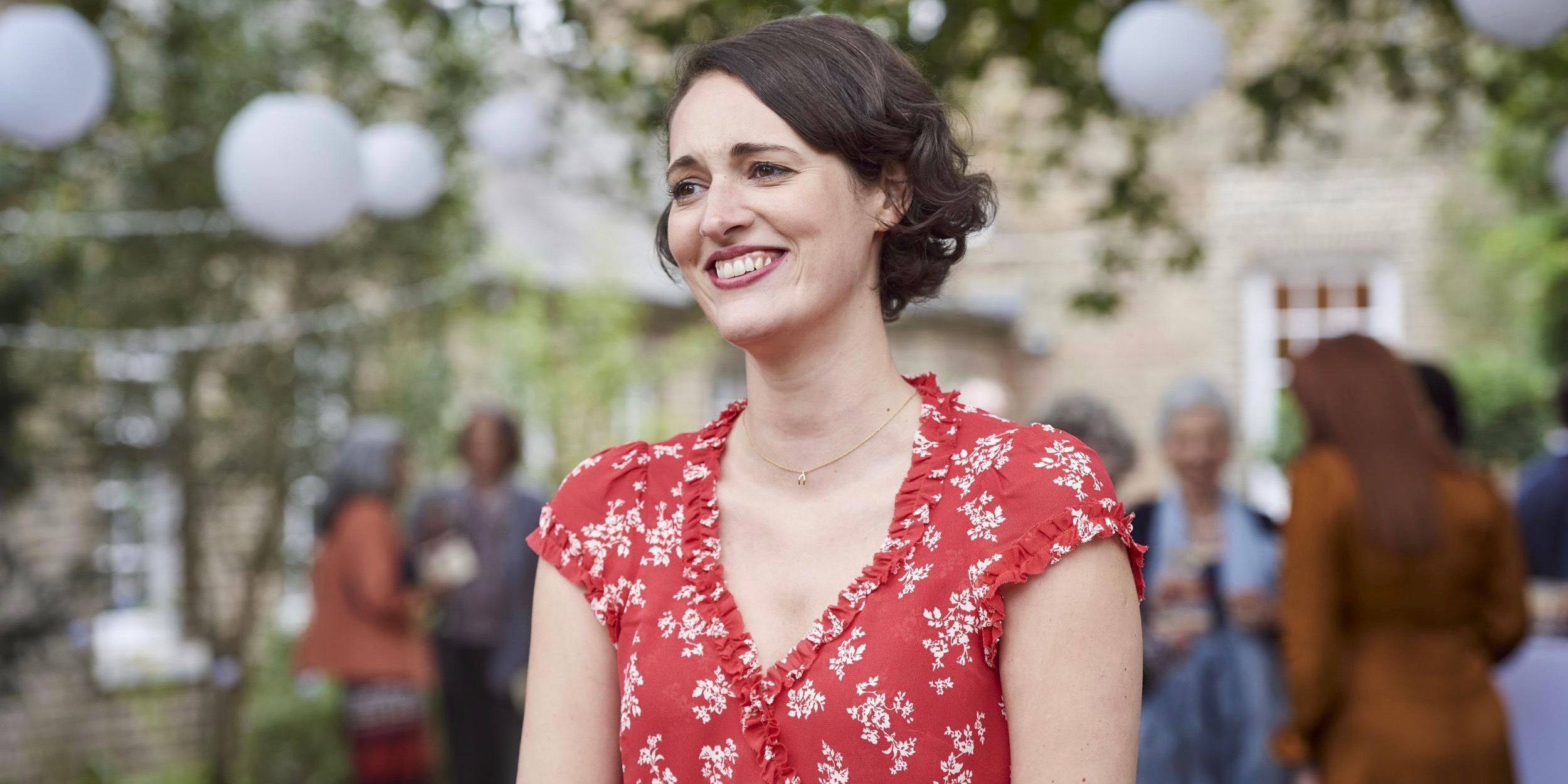
Through both seasons, Fleabag wears a wishbone necklace in almost every episode. The wishbone is a symbol of good luck, of belief possibility and in the future. For all that Fleabag acts as if she only cares about the present, there is a clearly a part of her that carries hope for her future. Maybe she just likes the symbology, or maybe she’s a bit superstitious and actually believes in it.
If she’s superstitious, maybe that’s part of what draws her to Priest. She may not agree with his Bible, but the mysticism of Catholicism might be part of what draws her to him. (Remember when her counselor asked if she wanted to fuck him or fuck God?) Plus, the way she wears it as a choker visually mirrors his clerical collar.
The Four Evangelists
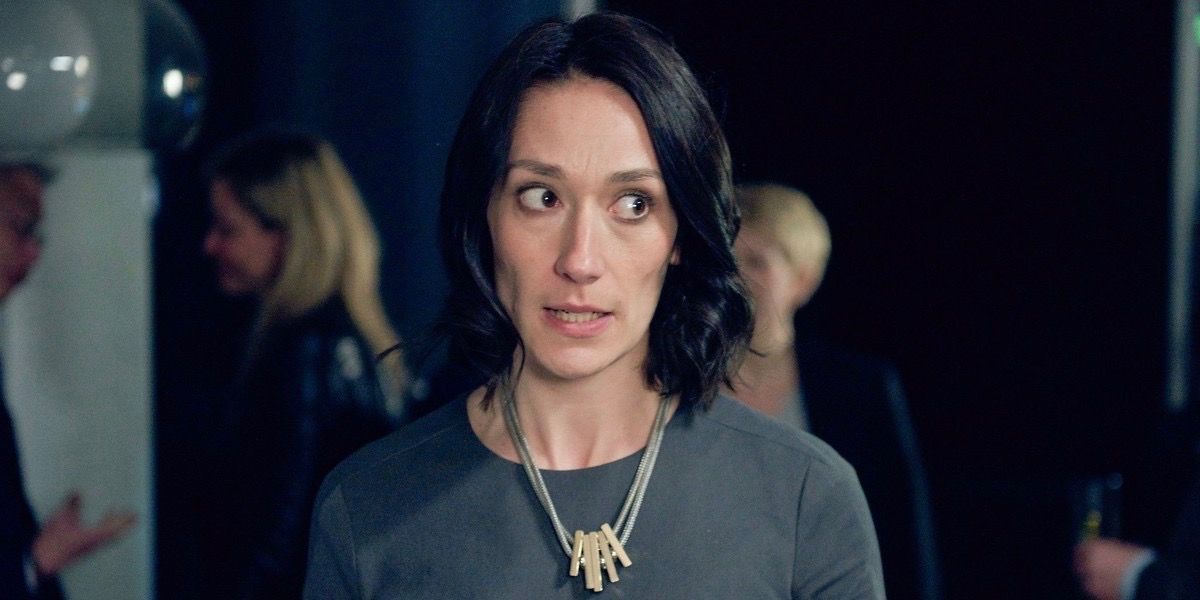
In the third episode of season two, Fleabag’s sister Claire opens up the floor for the Best Woman in Business award with a speech that begins “A huge thanks to Matthew, Mark, Luke, and John for coming up with this award.” Not only is it ironic that in her introduction to the Woman in Business award she can only mention men, but it’s yet one more nod to religious symbolism in this season.
Of course, the fact that Claire then has to hand Belinda Friers (Kristin Scott Thomas) the recurring naked statue instead of the original award makes this moment all the more subversive. The nude statue and misogyny of the subcategory “women in business” perfectly sets up Belinda’s moving speech about feminism.
We Don’t See a Fox Until the End

Priest’s fear of foxes comes up during season 2 episode 3, but we never actually see a fox until the very end, when Priest leaves Fleabag and walks alone into the night. Fleabag notices the fox, and tells it, “He went that way.” The fox immediately follows, but is it really there? It seems more likely that the fox is actually in Priest’s head, something that no one else is supposed to see. But just as Priest can see Fleabag “talking to us” throughout the season, Fleabag can see his externalized coping mechanisms by the end too.
So does the fox represent the Priest’s emotional baggage? Foxes seem to come up in conversation when they’re talking about something that’s difficult for him: when he claims Fleabag makes him feel closer to God; when Fleabag brings up celibacy; when he acknowledges their mutual attraction; when he says he’s choosing God over Fleabag.
It’s worth mentioning that St. Bernard of Clairvaux referred to foxes as “flatterers, detractors, and seducers of the spirit who are skilled and practiced in representing evil in the guise of good.” Bernard was expanding on Song of Solomon 2:15, and his writing is work that Priest would have absolutely been familiar with. Does Priest see love and sex with Fleabag as “evil in the guise of good”? If we ever get a season three, maybe we’ll know for sure.




